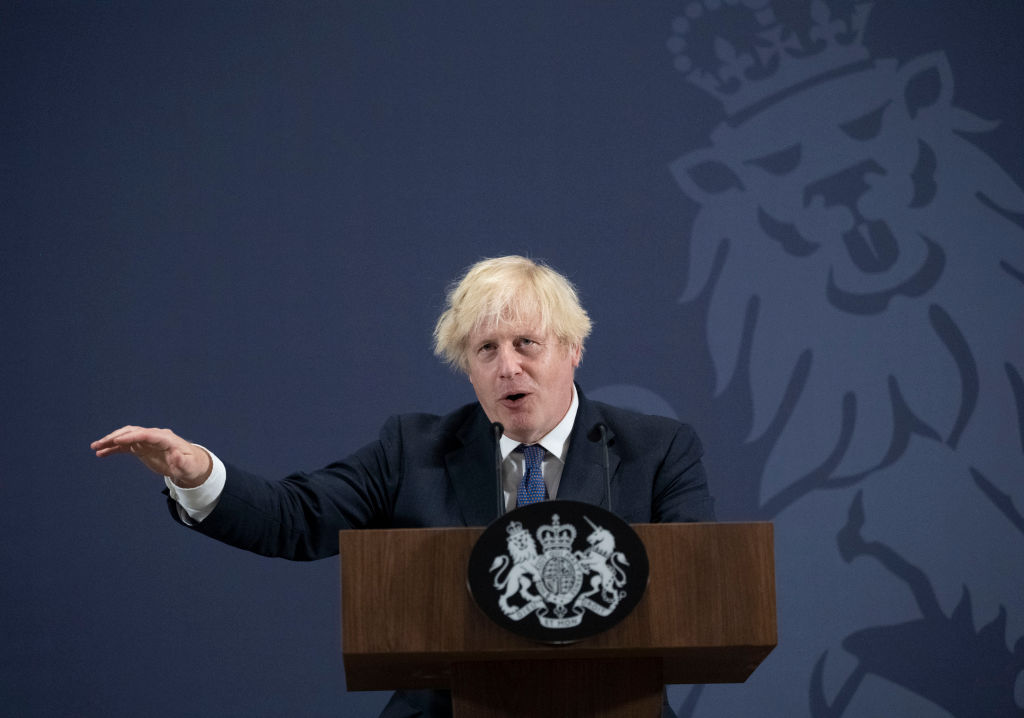No doubt Boris Johnson has many qualities but the only one that comes to mind is this: he is not a conservative. That realisation may be dawning a little late on his more spirited supporters, who gave short shrift to anyone making this point during the flaxen-haired dauphin’s campaign for the crown, but it sunk in some time ago with his savvier opponents.
Boris’s non-conservatism is not the primary obstacle to the Labour party (or the broader left) regaining parliamentary power. But it is an added hindrance that could be done without. However, it also presents an opportunity to use a nominally Tory government to advance policies that wouldn’t ordinarily appear in a Tory election manifesto.
A timely example is the £20 uplift to Universal Credit, which was introduced at the outset of the pandemic and also applies to the basic element of Working Tax Credit, but runs out in October. The chairs of four parliamentary welfare committees — Labour’s Stephen Timms (Commons), the SNP’s Neil Gray (Holyrood), the DUP’s Paula Bradley (Stormont) and Labour’s Jenny Rathbone (Senedd) — have written to Rishi Sunak and work and pensions secretary Therese Coffey to urge them to ‘consider making this uplift permanent and extending it to legacy benefits, which are disproportionately claimed by disabled people’.
They make all the usual points about the consequences of reversing the uplift: six million families will lose £1,040 a year; half a million Britons will go into poverty, including 200,000 children; single-parent families and families with disabled members will be hardest hit.
The Prime Minister is not a conservative but nor is he going to do the right thing by these six million families out of the goodness of his heart
Timms asked the Prime Minister about the letter at PMQs and, after recapitulating its main points, asked him to ‘follow his own policy’ and ‘level up’ by keeping the uplift in place. The PM said the government’s idea of levelling up was ‘increasing access to high-wage, high-skilled jobs and by getting people off benefits and into work’, unlike Labour which ‘wants to keep them on welfare’. This confirms previous indications from ministers that the policy is for the chopping block.
Timms isn’t the first to link the uplift to levelling up. There’s a good letter from North East charities doing the rounds today noting that Universal Credit recipients tend to spend locally and that ‘harming the region’s economy is the very opposite of ‘levelling up’’.
Those scare quotes are unfortunate because the levelling up agenda is probably the best chance of saving the uplift. It may be the line of argument that needs to be flipped. Instead of making the same case the centre-left and the welfare sector always make, then tagging on a scolding reference to the levelling-up agenda, reframe the uplift as a centrepiece:
The Prime Minister is right that we must ‘unite our country’ by ‘answering at last the plea of the forgotten people and the left-behind towns’ and that means ‘we level up across Britain’ and ‘close the opportunity gap’. The £20 uplift was an early example and snatching it back at the very moment of greatest financial anxiety, when the country will be waiting to see whether or not the economy bounces back, is a retreat from the Prime Minister’s signature agenda at the first opportunity. The forgotten people and left-behind towns will be levelled back down, and levelling up abandoned — all over twenty quid a week.
Now, of course, this is disingenuous for various reasons, not least that placing the emphasis on the individual weekly sum of the uplift disguises just how costly it would be to retain it. The Joseph Rowntree Foundation estimates the annual bill to be £6.4bn.
Yet, while the Chancellor was right to cite the original uplift as an instance of the government acting ‘to strengthen the safety net’, that safety net was one of the lowest in the OECD going into the pandemic. It is a safety net in which four in ten Universal Credit families are unable to keep up with household bills and one in five are behind on rent or mortgage payments.
Boris Johnson might not have had benefits in mind when he began talking about levelling up — preferring the thrills of capital investment and the more reassuringly Tory doctrine of stimulating private sector growth — but levelling up for the people and places he claims he wants to will have to include through the welfare system.
The Prime Minister is not a conservative but nor is he going to do the right thing by these six million families out of the goodness of his heart. His principled belief in work-not-welfare would soon buckle if the uplift was successfully reframed as a U-turn on levelling up — another U-turn by a Prime Minister who can’t seem to hold to a policy on Covid for longer than a news cycle and whose own supporters are growing more vocal over his about-turns on what kind of Tory he claims to be. Instead, the same people are lamenting another benefit cut with the same arguments, in the same tone, and likely with the same outcome.
Brutal though it may sound, the punters don’t like Universal Credit recipients. They resent them, if you must know. You’re not going to make their hearts bleed for them and Boris knows this, and so every Resolution Foundation report, every open letter from the bishops, every sob story recounted at PMQs just bounces off him.
Don’t attack his uplift plans morally, attack them politically. Use the man’s ideological spinelessness and the gathering disquiet about it within his own ranks against him. Co-opt his vapid and formless levelling up agenda and define it for him in the public imagination, so that his favourite soundbite becomes a trap in which inaction looks like a U-turn and the only way to appear consistent is to make concessions.







Comments